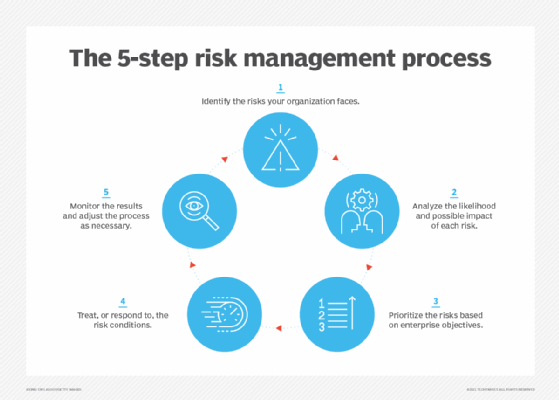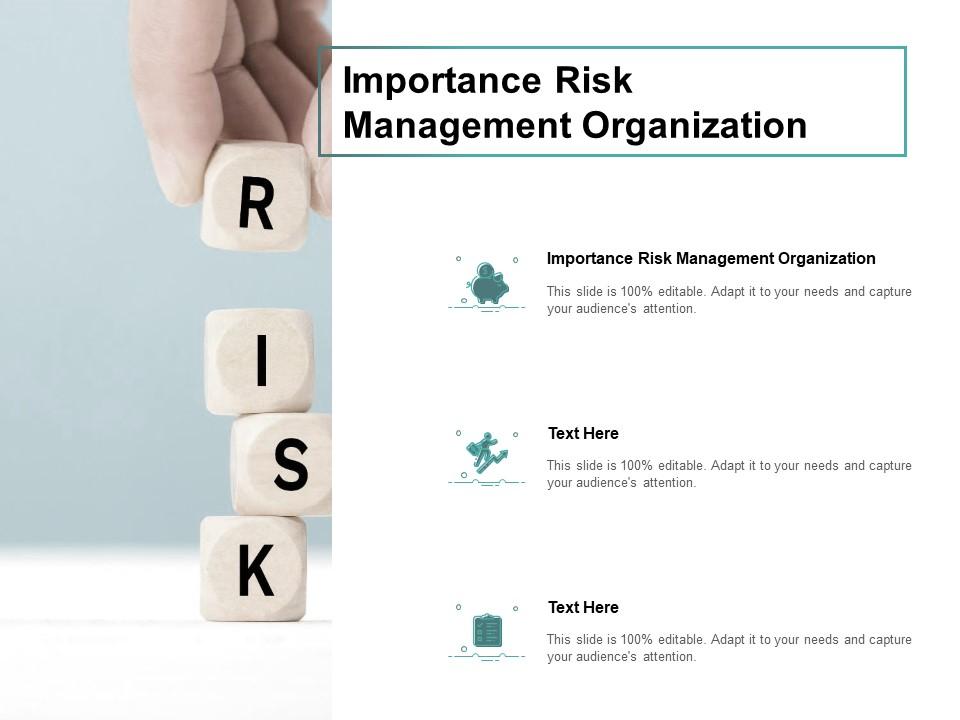The Far-Reaching Importance of Risk Management in International Supply Chains
The Far-Reaching Importance of Risk Management in International Supply Chains
Blog Article
The Significance of Recognizing the Importance of Risk Management in Various Industries

The Core Concept of Risk Management and Its Function
Risk Management, the keystone of several industries, pivots on the identification, analysis, and reduction of uncertainties in a service environment. It is an important technique that enables organizations to safeguard their possessions, online reputation, and general survival. By appropriately determining potential dangers, services can establish strategies to either avoid these dangers from occurring or lessen their effect. The analysis process involves evaluating the possibility and prospective extent of these threats. Once threats have been identified and examined, the reduction process entails devising techniques to minimize their prospective effect. This procedure is cyclical and recurring, making sure that companies are prepared for the ever-changing nature of Risk in different markets. The key function, therefore, is to promote strength in the middle of uncertainties.
Benefits of Implementing Risk Management in Business Procedures

Introducing the Function of Risk Management in Different Industries
While every sector confronts its one-of-a-kind set of threats, the execution of Risk Management strategies continues to be a common measure in their search of sustainability and development. In the medical care field, Risk Management requires ensuring client safety and information protection, while in financing, it includes mitigating investment dangers and special info ensuring regulative conformity (importance of risk management). Building and construction companies concentrate on worker safety, task delays, and budget overruns. In the innovation field, business minimize cybersecurity hazards and technology obsolescence. Ultimately, the function of Risk Management throughout sectors is to recognize, evaluate, and alleviate threats. It is a crucial part of tactical planning, enabling organizations to safeguard their possessions, optimize possibilities, and achieve their goals.
Real-life Instance Researches Showing Effective Risk Management
To comprehend the relevance of Risk Management in these several markets, one can seek to several real-life look at this now circumstances that show the successful application of these steps. For instance, in the power field, British Oil established Risk reduction intends post the 2010 Gulf of Mexico oil spill. They implemented better safety and security procedures and more stringent policies which dramatically minimized additional accidents. In finance, Goldman Sachs efficiently navigated the 2008 economic dilemma by identifying prospective mortgage-backed protections dangers early. Toyota, publish the 2011 earthquake in Japan, changed its supply chain Management to decrease interruption threats. These situations show how sectors, picking up from situations, efficiently used Risk Management strategies to minimize future risks.
Future Trends and Growths in Risk Management Techniques
As the world proceeds to develop, so also do the patterns and advancements in Risk Management approaches. Rapid developments in innovation and information analytics are reshaping the Risk landscape. Large data and AI are now critical in anticipating and mitigating risks. Organizations are leveraging these tools to develop anticipating designs and make data-driven choices. Cybersecurity, as soon as an outer worry, has actually catapulted to the leading edge of Risk Management, with methods concentrating on discovery, prevention, and reaction. The integration of ESG (Environmental, Social, Administration) factors into Risk Management is another growing fad, showing the enhancing recognition of the role that social and environmental risks play in business sustainability. Therefore, the future of Risk Management exists in the fusion of sophisticated innovation, innovative strategies, and an all natural strategy.
Final thought
In verdict, recognizing the significance of Risk Management across a spectrum of industries is important for their durability and prosperity. Tailored approaches can aid reduce prospective risks, protect properties, and foster stakeholder trust. Furthermore, proactive decision-making aids in governing compliance and optimizes resource usage. Ultimately, successful Risk Management adds to more lasting and durable businesses, highlighting the relevance of this method in today's extremely competitive and vibrant business environment.
While every sector faces its special collection of threats, the implementation of Risk Management methods remains an usual in their pursuit of sustainability and development. In the medical care market, Risk Management entails making sure client security and information protection, while in financing, it wikipedia reference involves mitigating financial investment threats and making certain regulative compliance. Inevitably, the duty of Risk Management throughout markets is to determine, analyze, and minimize dangers. These cases show just how industries, discovering from dilemmas, successfully applied Risk Management techniques to minimize future dangers.

Report this page